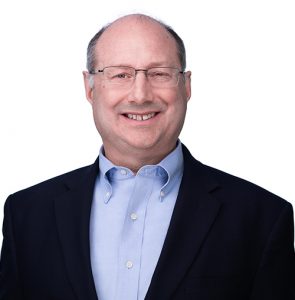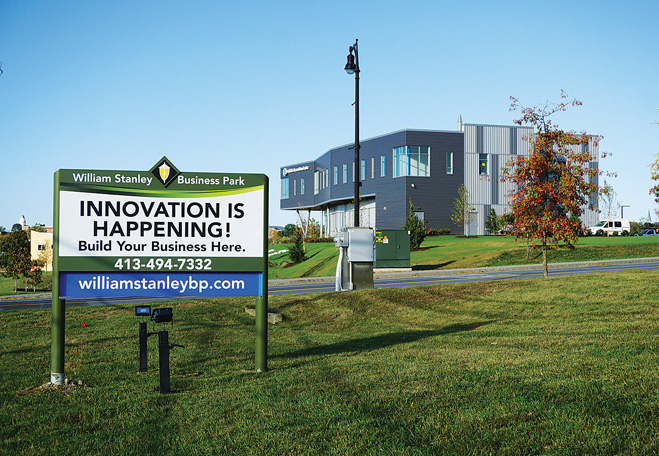 GE’s Legacy Shapes Future of Pittsfield Property
GE’s Legacy Shapes Future of Pittsfield Property
By Christopher R. Vaccaro
Special to Banker & Tradesman
Massachusetts law defines “gateway municipalities” as cities and towns with populations between 35,000 and 250,000, where median household incomes and rates of residents with bachelor’s degrees are below the state average. Commonly called “Gateway Cities,” these communities often face economic challenges because of lost manufacturing jobs, but they also offer the advantage of lower real estate costs than tonier communities.
Pittsfield is a one such community nestled in the scenic Berkshires of western Massachusetts. Hiking, camping and skiing are available for outdoor recreation. Pittsfield also offers theater productions at the Barrington Stage and Colonial Theater, and the city is near the Jacob’s Pillow dance festival in Becket, the Tanglewood Music Center in Lenox and the Williamstown Theatre festival.

According to Pittsfield’s business development manager Michael Coakley, “Employers and employees alike have found that Pittsfield, the economic hub of the Berkshires, is a great place to live, work and raise a family with year-round outdoor recreational activities, world-class cultural attractions and easy access to Boston and New York City. Pittsfield’s manufacturers and innovative companies thrive with lower costs of living and doing business, than in the more urban areas.”
A Toxic Legacy Remediated
Despite these desirable attributes, Pittsfield suffered economically and environmentally from its status as a company town for General Electric Co. GE curtailed its manufacturing activities in Pittsfield, but not before discharging toxic PCBs from its transformer plant into the Housatonic River and the surrounding area for decades.
In 1999, the Environmental Protection Agency pressured GE to accept a consent decree, later approved by the U.S. District Court in Massachusetts. Under this consent decree, GE committed to remediating groundwater and soil contamination at its plant site and elsewhere, removing contaminated sediments from nearby wetlands, capping toxic landfills, installing groundwater monitoring systems and cleaning up the Housatonic River downstream from its plant. The commonwealth of Massachusetts, state of Connecticut and city of Pittsfield were also parties to the consent decree. More than two decades later, GE is still remediating PCB contamination caused by its activities.
The consent decree also required GE to provide financial support to the city and the Pittsfield Economic Development Authority (PEDA), a corporate body authorized by the Massachusetts legislature to acquire GE’s properties and prepare them for redevelopment and reuse. GE entered into a Definitive Economic Development Agreement with PEDA and the city, under which GE remediated contamination and demolished buildings on 52 acres of its plant site near Pittsfield’s center, then transferred that property to PEDA. GE also agreed to make a $15.3 million redevelopment fund available to PEDA for reconstruction and economic incentive packages for owner-occupants, and a $10 million gift to the city.
Six Shovel-Ready Lots Available
PEDA used the 52 acres and GE funding to create the William Stanley Business Park (WSBP) as a commercial development zoned for industrial and manufacturing uses. The site has freight rail access, with rail lines running north, south, east, and west. Current WSBP occupants include the Berkshire Innovation Center (BIC), Electro Magnetic Applications, MountainOne Financial and Eversource. The BIC offers research and development facilities for manufacturers.
Electro Magnetic Applications is a Denver-based technology company operating a laboratory that tests the resilience of machinery and materials to be used in the highradiation and super-chilled environment of outer space. MountainOne Financial offers banking, insurance and investment services throughout Massachusetts. Eversource operates a solar array that generates 1.8 megawatts of electricity on an 8-acre site.
The WSBP has six construction-ready lots ranging in size from one to 16 acres. The larger lots are subdividable. State and local economic incentives are available through PEDA.
The Massachusetts Biotechnology Council awarded Pittsfield a “Gold” BioReady rating, which is reserved for cities and towns that offer biotech firms adequate water and sewer service, receptive zoning laws and city officials, and available sites pre-permitted for biotech uses. The WSBP’s zoning laws and available sites make it an excellent location for biotech businesses.
Pittsfield also created a “Red Carpet Team” comprised of state and local officials from the city, PEDA, the Pittsfield Economic Revitalization Corp., MassDevelopment, the Massachusetts Office of Business Development and MassHire. This team meets with businesses interested in locating or expanding in Pittsfield, to explain available tax and financial incentive programs. The Red Carpet Team successfully attracted e-commerce retailer Wayfair, which is expected to employ 300 people at a call center in Pittsfield.
Given Pittsfield’s cultural and recreational amenities, and its determination to attract laboratory, technology, and manufacturing businesses, it is worthy of serious consideration as a location for both start-up and established players in those industries.
Download the article as seen in Banker & Tradesman on January 31, 2022. Learn more about Christopher R. Vaccaro.